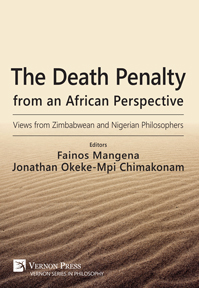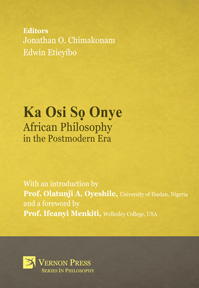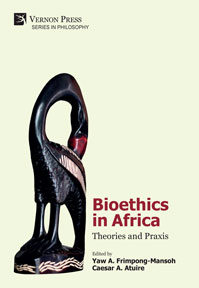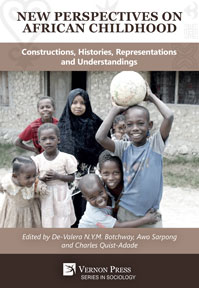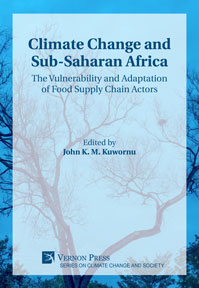The African Mother Tongue and Mathematical Ideas
A Diopian Pluridisciplinary Approach
by Abdul Karim Bangura (American University Center for Global Peace)
Purchase this book
(click here to change currency)
Abdul Karim Bangura’s new text has its roots deep into the socio-cultural science that has eluded Africa for so long. The colonial legacy has shattered the dreams and aspirations of African students on the continent who aspire to relate the study of mathematical science to their cosmological realities. The book demonstrates that the study of mathematics in Africa should be informed by, and anchored in the socio-cultural linguisticity of the continent since Mathematics as we know it was birthed in Kemet/Egypt. Without the marriage of linguistics and mathematics, computational science as we know it today will continue to be a pseudo-science for Africans because of the paucity of Afrocentricity in them.
Prof. Dr. Kehbuma Langmia,
Department of Strategic, Legal and Management Communication (SLMC), Cathy Hughes School of Communications
author/editor of Black/Africana communication theory
"The African Mother Tongue and Mathematical Ideas" uniquely and distinctly focuses on two very important points with a plethora of evidence. It eloquently appeals for the use and applicability of African languages in Mathematics education and the dire and urgent need for more sociopolitical research on language, teaching and the learning of mathematics.
Dr. Bangura challenges the exclusion of African languages in mathematics education. He provides a variety of ideas and critical perspectives of African languages in mathematics education and how the application of these languages in mathematics education will impact sustainable development in Africa.
The book goes beyond exploration. It illustrates, presents, highlights, and offers Africancentric perspectives in the understanding of and education of mathematics. The author methodically illustrates the important role of linguistics by outlining: Africancentricity research, Study of Linguistics and Mathematics, Semanticity, Cultural Transmission, Arbitrariness Discreteness Displacement, and The Role for Mathematicians in African Rennaissance.
This is a must read book and highly recommended for various practitioners, mathematics educators, teachers, students in various disciplines, and policy makers whose decisions impact educational curriculum.
This is a fascinating, invaluable and intriguing resource for mathematics education.
Dr. Onimi Wilcox
Lee College
This book by renowned scholar Dr Abdul Karim Bangura combines linguistics and mathematics to show how and why African-centred mathematical ideas can be a driving force in Africa’s development efforts. Bangura explores the concept that Africa has been the centre of the History of Mathematics for thousands of years, as the civilizations that emerged across the continent developed contributions which would enrich both ancient and modern understanding of nature through mathematics. However, scholars and other professionals working in the field of mathematics education in Africa have identified a plethora of issues in carrying out their tasks. This is highlighted by one of the most compelling arguments in the book, which is that a major reason for these problems is the fact that the African mother tongues has been greatly neglected in the teaching of mathematics in the continent. Bangura asserts that a change has to be made in order for Africa to benefit from the exceptional opportunities mathematics offer, showing that, even if there is a great body of work connecting linguistics and mathematics, few analyses have been performed on the link between African languages and mathematics—and the ones that have been made are not theoretically-grounded on linguistics. Thus, the book begins by identifying the objects of study of linguistics and mathematics, and delineates which ones they have in common. Next, since the object of study of linguistics is language, the nine design features of language are employed to examine each of the objects as it pertains to African languages. After that, mathematical ideas of sustainability and those of tipping points are suggested as means to help Africa’s development efforts.
Dedication
Acknowledgments
Foreword:Africanity and the Language of Mathematics
Toyin Falola
Preface
Chapter 1: General Introduction
Chapter 2: Objects of Study of Linguistics and Mathematics
Chapter 3: Mode of Communication
Chapter 4: Semanticity
Chapter 5: Pragmatic Function
Chapter 6: Interchangeability
Chapter 7: Cultural Transmission
Chapter 8: Arbitrariness
Chapter 9: Discreteness
Chapter 10: Displacement
Chapter 11: Productivity
Chapter 12: The Role for Mathematicians in the African Renaissance
Chapter 13: General Conclusion
Bibliography
Index
About the Author
Abdul Karim Bangura is a researcher-in-residence of Abrahamic Connections and Islamic Peace Studies at the Center for Global Peace at American University and the director of The African Institution, both in Washington DC. He is also a visiting graduate professor of Regional Integration at the University of Cabo Verde as well as director of the Institute and senior doctoral dissertations mentor of the CODESRIA College of Mentors in Dakar (Senegal). Bangura is also a member of many scholarly organizations, has served as President and then United Nations Ambassador of the Association of Third World Studies, and is a Special Envoy of the African Union Peace and Security Council. He has recently been awarded the Special United States Congressional Award for “outstanding and invaluable service to the international community.”
Theoretical grounding, methodological grounding, epistemological basis, empiricism, original sources and findings, African-centeredness, mastery of the relevant literature, rigorous analyses
See also
Bibliographic Information
Book Title
The African Mother Tongue and Mathematical Ideas
Book Subtitle
A Diopian Pluridisciplinary Approach
ISBN
978-1-62273-818-2
Edition
1st
Number of pages
402
Physical size
236mm x 160mm

![The African Mother Tongue and Mathematical Ideas [Hardback]](/file/11301/e28860ba9c25a33a258d2431e5682264/1581936830.jpg)


